Edinburgh family stunned to discover ancestors’ link to wartime spy ship
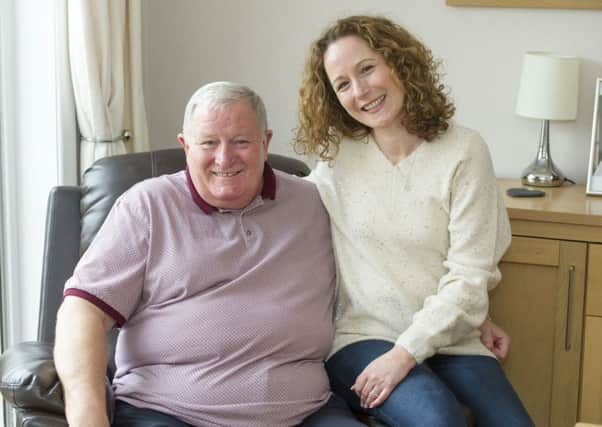

But for one couple, the perilous secret history of a little-known espionage vessel has thrown up a remarkable naval connection that remained buried for more than 75 years.
Kirsty Sowden, from Edinburgh, and husband Phil were completely unaware that two of their distant relatives were among the tiny crew of the daring HMS Tarana during the Second World War – despite being from different ends of the country.
Advertisement
Hide AdAdvertisement
Hide AdHowever, when 13-year-old son Fraser began researching their naval history after joining the sea cadets, he stunned family members by revealing Kirsty’s grandfather had served under Phil’s great uncle during the conflict.
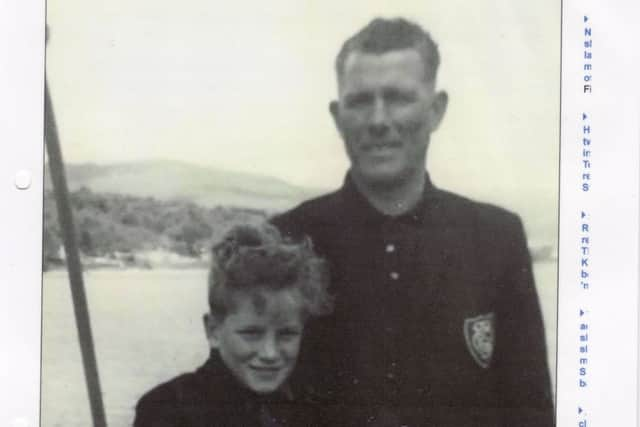

George Eckford Ponton volunteered as a seaman on the spy ship commanded by Lieutenant Douglas William Sowden which operated behind enemy lines under the guise of a Portuguese fishing boat.
The pair carried out dozens of missions together, retrieving escaped PoW’s from the South of France before returning them to Gibraltar to be repatriated.
And an amazing photograph taken during their time together on the ship even reveals they were part of the same navy football team.
Kirsty, 42, said she was in a “state of shock” after Fraser uncovered the link during a visit from her dad, James Ponton, to the family home in Brentwood, Essex.
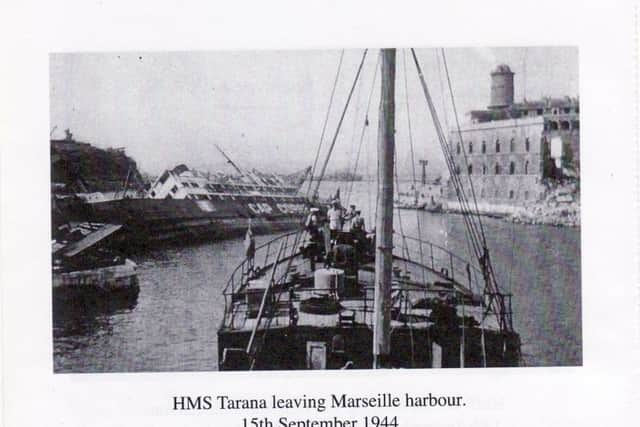

Kirsty said: “We knew for years that my granddad had been on the Tarana, but I can’t remember ever having a proper conversation about it.
“I think Fraser had been telling him about the sea cadets and how Phil’s mum had given him lots of information on Douglas Sowden and my dad mentioned that his dad, Fraser’s great granddad had been in the navy as well.
“Fraser went to get the files after they had talked about the Tarana and the hairs on his neck just stood up when we saw the ship on the list of vessels Douglas had sailed on.”
Advertisement
Hide AdAdvertisement
Hide AdKirsty added the families were determined to discover more about their previously unknown link and uncovered war records confirming they had been on the ship at the same time.
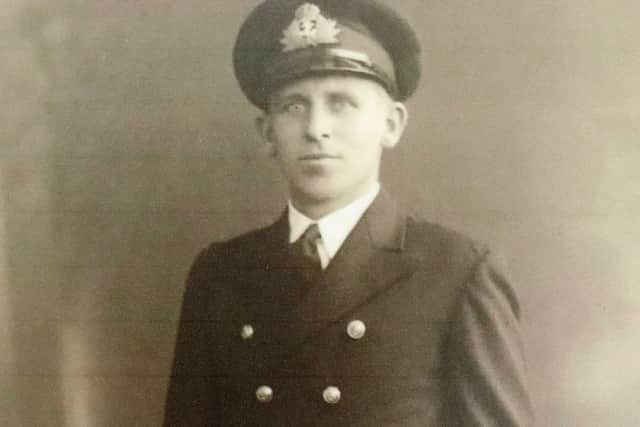

But the story became even more incredible when a memoir written by former crewmate Ron Stephens was found to include a photograph of the two men posing together as part of a football team.
Kirsty said: “It was just a shock, I don’t think me and Phil had ever even spoken about it, but this photograph, it was just unbelievable.
“That boat had such a small crew, it needed to given the secrecy of their missions, so it is incredible that we never realised until now.
“After that, when we found George’s discharge notice signed by Douglas, I was just speechless.”
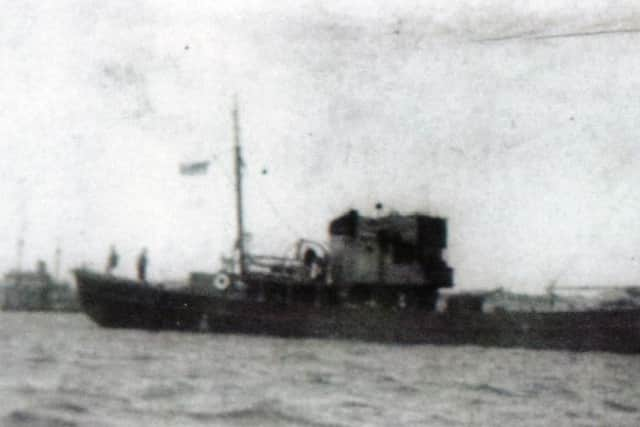

George, who was born in Edinburgh, signed up to be a navy seaman at the outbreak of the conflict, but Kirsty admitted she did not know how he became assigned to the Tarana.
Douglas, from West Ham, East London, rose through the ranks to become a commodore, being named captain of the ship in 1943 and earning the French Legion of Honour medal for his services during the war.
The vessel was initially a Dutch fishing trawler that ferried refugees from France to Southampton, but it was soon converted into a clandestine spy ship that carried out daring missions behind enemy lines.
Advertisement
Hide AdAdvertisement
Hide AdSailing out from Gibraltar in the traditional navy grey, it would be redecorated to resemble a traditional Portuguese fishing boat, allowing courageous agents secret passage to repatriate escapees from the South of France.
The ship would then be repainted at sea before returning to Gibraltar. The crew were awarded the Croix de Guerre with Bronze Palm by the French Government in 1944 for their service during the conflict.
James, 67, said he was well aware of the danger involved in the clandestine missions, adding that a few of the passengers they picked up meant it was very rarely plain sailing.
James said: “No one really knows how George got involved with the Tarana, but they were dangerous missions, if any of the crew had been captured, they would have been shot immediately.
“At one point, they picked up Lord Beaverbrook’s son who was a hugely respected fighter pilot during the war, but he almost caused a mutiny aboard the ship.”
James explained: “He decided to do a bit of sunbathing on the deck as they were sailing back into Gibraltar and pasted himself in butter so he could get a tan. Unfortunately, it was all they had left on the boat and given rationing was being operated at the time, that really did not go down well.
“It nearly caused a riot, the crew were all for forcing him over the side but I think given his family connections – his dad was an extremely powerful man and the minister of war – they decided against it.”
James laughed: “I can’t imagine he was hugely popular for the rest of that trip.”
Advertisement
Hide AdAdvertisement
Hide AdHundreds of men and women were saved by the crew without loss, before a traitorous member forced the ship to be switched to similar seaborne operations off Algiers towards the end of the conflict.
Douglas passed away in 1986 at the age of 71, while George sadly died before he could meet Fraser in 2000 at 86.
Kirsty and Phil, 50, married in 2001, however never discovered their shared family history until Fraser began his research.
But Kirsty admitted a naval interest was “in Fraser’s blood”, adding the schoolboy is a passionate member of the sea cadets.
She said: “We never really spoke about the connection, it just wasn’t something we ever considered. My family are all from Edinburgh and his are all in London, it never crossed our minds that they could be linked in any way.
“It does make you wonder whether it is nature or nurture, but Fraser certainly has it in his blood and he is very much into it.
“He loves the sea cadet unit, so maybe it is something he will pursue in the future, but for now, I just think it is absolutely fantastic for him to have such a close connection with something that means so much to him.”